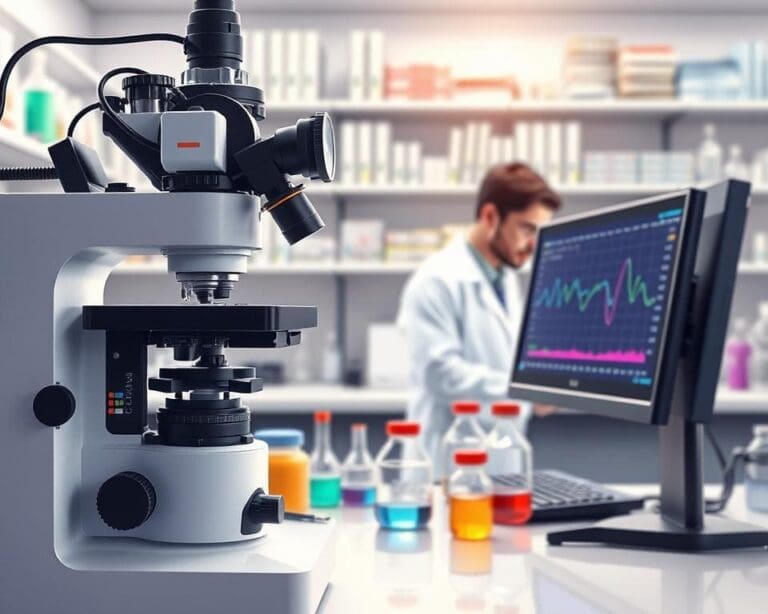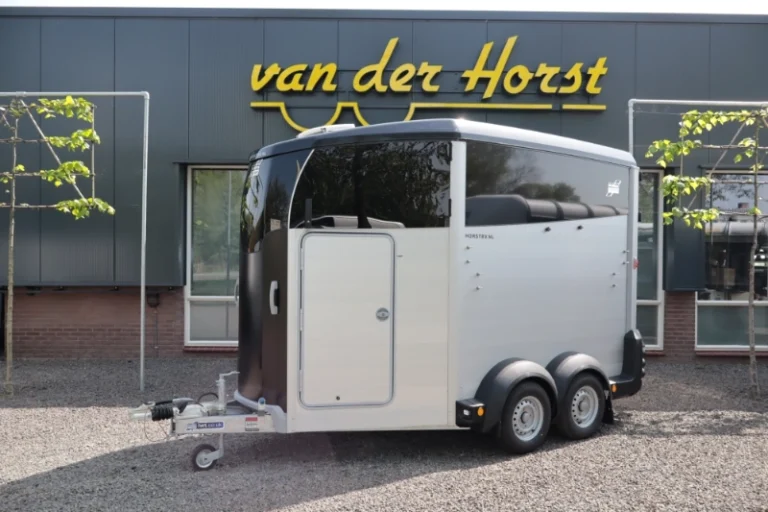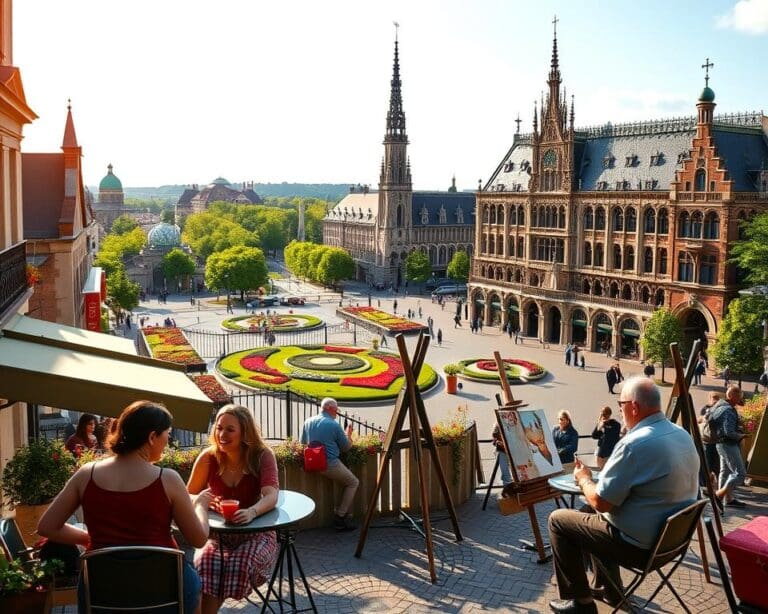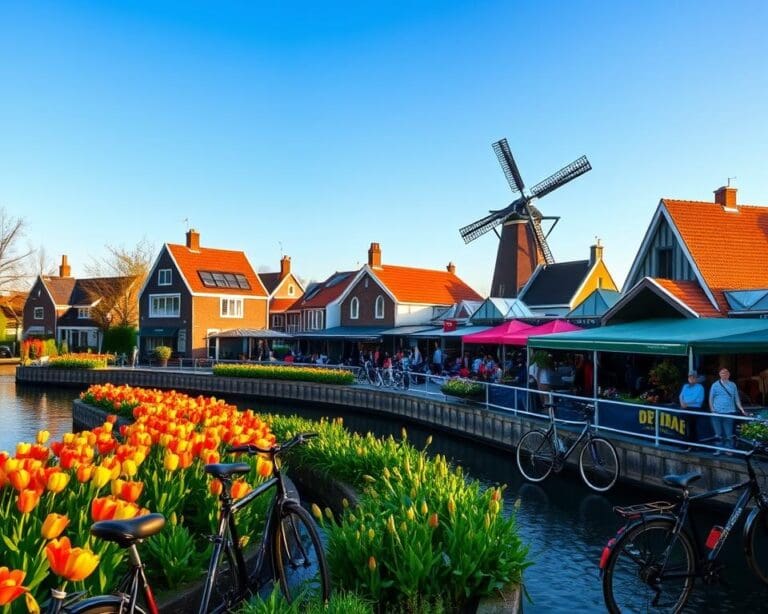The transportation industry is constantly evolving, driven by groundbreaking innovations that are transforming the way we move people and goods. From the rise of electric vehicles and autonomous driving technologies to the development of sustainable fuel sources and smart transportation systems, the latest advancements in transportation technology are shaping the future of mobility. In this article, we’ll explore these cutting-edge innovations and uncover how they are poised to revolutionize the transportation landscape.
Key Takeaways
- Explore the latest breakthroughs in transportation technology, including electric vehicles, autonomous driving, and sustainable fuel sources.
- Discover how advancements in transportation technology are improving efficiency, promoting sustainability, and enhancing the overall mobility experience.
- Understand the impact of smart transportation systems and infrastructure on the future of transportation.
- Learn about innovative transportation solutions, such as hyperloop technology and drone delivery services.
- Gain insights into the evolving role of transportation technology in shaping the future of cities and global mobility.
The Evolution of Modern Transportation Technology
The world of transportation has undergone a remarkable transformation, evolving from traditional methods to highly advanced, digital systems. This evolution has paved the way for groundbreaking innovations that have revolutionized the way we move, both locally and globally.
From Traditional to Digital Transportation Systems
In the past, transportation relied heavily on analog technologies, such as combustion engines and manual control systems. However, the rise of elektrische voertuigen (electric vehicles) and intelligente vervoerssystemen (intelligent transportation systems) has ushered in a new era of transportation that is more efficient, sustainable, and responsive to the needs of modern society.
Key Milestones in Transport Innovation
The journey of transportation technology has been marked by several key milestones. From the invention of the internal combustion engine to the development of GPS-guided navigation, the industry has continuously pushed the boundaries of what is possible. These advancements have led to the creation of duurzame brandstoffen (sustainable fuels) and autonomous driving technologies, paving the way for a more connected and eco-friendly future.
Impact on Global Mobility
The evolution of transportation technology has had a profound impact on global mobility patterns. The introduction of high-speed rail, elektrische voertuigen, and intelligente vervoerssystemen has made it easier for people to travel long distances, while also reducing the environmental impact of transportation. These innovations have also influenced the development of smart cities and the integration of transportation infrastructure with modern urban planning.
“The future of transportation is not just about getting from point A to point B, but about creating a more sustainable, efficient, and connected world.” – Transportation Expert
Electric Vehicles: Revolutionizing Personal Transportation
The rise of electric vehicles has ushered in a new era of sustainable transportation, transforming the way we think about personal mobility. These eco-friendly alternatives to traditional gasoline-powered cars are not only reducing our carbon footprint but also paving the way for a future of battery technology and sustainable transportation.
Advancements in battery technology have been a driving force behind the growing popularity of electric vehicles. Longer driving ranges, faster charging times, and improved energy efficiency have made electric cars a viable option for an increasing number of consumers. As the technology continues to evolve, the barriers to widespread adoption are being steadily overcome.
Alongside technological advancements, the expansion of charging infrastructure has been crucial in supporting the growth of electric vehicles. Governments and private entities are investing heavily in the development of charging stations, making it easier for electric car owners to keep their vehicles powered up and ready to go.
The environmental benefits of electric vehicles are also undeniable. By reducing emissions and reliance on fossil fuels, electric cars are playing a significant role in the global effort to combat climate change and promote sustainable transportation solutions. As more people make the switch to electric vehicles, the positive impact on air quality and greenhouse gas emissions will continue to grow.
| Feature | Traditional Gasoline-Powered Car | Electric Vehicle |
|---|---|---|
| Fuel Source | Gasoline | Electricity |
| Emissions | High | Zero (at the point of use) |
| Refueling/Charging Time | 5-10 minutes | 30 minutes to several hours, depending on charging infrastructure |
| Maintenance Costs | Higher | Lower |
As the world continues to embrace the transition to sustainable transportation, electric vehicles are at the forefront of this revolution, offering a cleaner, more efficient, and environmentally friendly alternative to traditional modes of personal transportation.
Autonomous Vehicles and Self-Driving Technology
The transportation industry is on the cusp of a revolutionary transformation, driven by the rapid advancements in autonomous vehicle (AV) technology. These self-driving cars, powered by a combination of artificial intelligence, advanced sensors, and sophisticated algorithms, are poised to redefine the way we move around our cities and communities.
Advanced Driver Assistance Systems (ADAS)
At the forefront of this technological revolution are advanced driver assistance systems (ADAS). ADAS incorporate a range of features that enhance vehicle safety and driver awareness, laying the foundation for fully autonomous driving. These systems include lane departure warning, automatic emergency braking, adaptive cruise control, and pedestrian detection – all of which work together to create a safer driving experience.
Machine Learning in Autonomous Navigation
The key to unlocking the full potential of zelfrijdende auto’s lies in the integration of machine learning algorithms. These powerful tools enable self-driving cars to navigate complex environments, make real-time decisions, and adapt to changing road conditions. By continuously learning and improving their capabilities, these vehicles are poised to revolutionize personal transportation and enhance vehicle safety.
Safety Innovations in Self-Driving Cars
- Redundant sensor systems for enhanced perception and redundancy
- Advanced collision avoidance algorithms to prevent accidents
- Ethical decision-making protocols to handle complex driving scenarios
- Seamless integration with intelligent transportation infrastructure for improved coordination
As the industry continues to innovate and refine these technologies, the promise of a future where zelfrijdende auto’s and artificial intelligence work in harmony to provide unprecedented levels of vehicle safety is becoming a reality.
Sustainable Fuel Technologies and Alternative Energy Sources
As the world strives to reduce its carbon footprint, the transportation industry has been at the forefront of exploring innovative solutions. One such development is the rise of sustainable fuel technologies and alternative energy sources that are transforming the way we power our vehicles.
Among the most promising advancements are duurzame brandstoffen, or sustainable fuels, such as biofuels. These fuels are derived from renewable sources like agricultural waste, vegetable oils, and even algae, offering a cleaner and more environmentally-friendly alternative to traditional fossil fuels. The use of renewable energy in transportation is steadily gaining momentum, with electric vehicles (EVs) and hydrogen fuel cells leading the charge.
Hydrogen fuel cells, in particular, have garnered significant attention for their potential to revolutionize the transportation sector. These innovative systems use hydrogen fuel cells to generate electricity, which then powers the vehicle’s electric motor, resulting in zero direct emissions and a more sustainable mode of transportation.
- Biofuels: Renewable fuels derived from organic sources, reducing reliance on fossil fuels.
- Electric Vehicles: Battery-powered cars that eliminate tailpipe emissions and promote clean mobility.
- Hydrogen Fuel Cells: Innovative technology that generates electricity from hydrogen, powering vehicles with zero emissions.
As the world continues to embrace the need for sustainable transportation solutions, these advancements in fuel technologies and alternative energy sources are paving the way for a greener and more eco-conscious future on the road.
Drone Technology in Transportation and Delivery Services
In the rapidly evolving world of transportation, drone technology is emerging as a transformative force. From revolutionizing commercial applications to enabling innovative urban air mobility solutions, drones are poised to redefine the delivery landscape, particularly in the realm of last-mile delivery.
Commercial Drone Applications
Drones are finding widespread adoption across various commercial sectors. Their ability to access hard-to-reach areas, combined with their cost-effectiveness and versatility, makes them a valuable asset in industries such as infrastructure inspection, agriculture, and emergency response. As the technology continues to advance, the potential applications for drones continue to expand.
Urban Air Mobility Solutions
The concept of urban air mobility is gaining traction as cities grapple with increasing congestion and the need for efficient transportation alternatives. Drones are at the forefront of this revolution, offering the potential to alleviate urban traffic by providing aerial transportation options. From passenger-carrying eVTOLs (electric vertical take-off and landing) to cargo-carrying drones, this emerging field holds promise for transforming the way people and goods move within and between cities.
Last-Mile Delivery Innovation
- Drones are revolutionizing the last-mile delivery segment, providing a faster, more efficient, and environmentally-friendly solution to traditional ground-based delivery methods.
- By leveraging the ability of drones to navigate directly to their destination, businesses can optimize their delivery operations, reduce costs, and provide enhanced customer experiences.
- The integration of drone technology with advanced logistics systems and autonomous navigation capabilities is paving the way for a new era of on-demand and streamlined delivery services.
As the transportation landscape continues to evolve, the versatility and potential of drone technology are poised to shape the future of mobility and delivery services, offering innovative solutions to address the challenges of modern urban centers.
Wat zijn de nieuwste innovaties in transporttechnologie?
In the ever-evolving world of transportation, the latest innovations are reshaping the way we move. From gedeelde mobiliteit to smart cities and connected vehicles, the future of urban transportation is being redefined by cutting-edge technologies.
One exciting development is the rise of shared mobility solutions. By leveraging the power of digital platforms and mobile connectivity, companies are offering innovative alternatives to traditional car ownership, such as car-sharing, ride-hailing, and bike-sharing programs. These solutions not only provide greater flexibility and convenience for urban dwellers but also contribute to reducing traffic congestion and environmental impacts.
Alongside gedeelde mobiliteit, the integration of smart city infrastructure is transforming the way we navigate our cities. Advanced sensors, data analytics, and intelligent traffic management systems are enabling cities to optimize traffic flow, reduce congestion, and enhance the overall efficiency of transportation networks. This integration of technology and urban planning is paving the way for a more seamless and sustainable mobility experience.
Furthermore, the rise of connected vehicles is revolutionizing the way we interact with our modes of transportation. With the integration of internet-connected technologies, cars can now communicate with each other, infrastructure, and even pedestrians, creating a more intelligent and safer transportation ecosystem. This connectivity enables features like real-time traffic updates, collision avoidance systems, and autonomous driving capabilities, all of which contribute to a more efficient and secure transportation future.
As we continue to explore these innovative solutions, the potential for transformative change in the way we move and experience our urban environments is truly exciting. By embracing these advancements in gedeelde mobiliteit, smart cities, and connected vehicles, we are paving the way for a more sustainable, efficient, and accessible transportation landscape.
Smart Transportation Systems and Infrastructure
The transportation industry is undergoing a transformative shift, driven by the integration of intelligente vervoerssystemen, the Internet of Things (IoT), and innovative smart traffic management solutions. These cutting-edge technologies are revolutionizing how we move from one place to another, offering unprecedented efficiency, safety, and sustainability.
IoT in Transportation
The IoT is playing a pivotal role in the development of smart transportation systems. Connected devices, sensors, and data-driven analytics are enabling real-time monitoring and optimization of transportation networks. From traffic flow monitoring to predictive maintenance of vehicles and infrastructure, IoT is transforming the way we manage and experience our transportation systems.
Traffic Management Solutions
Advanced smart traffic management solutions are leading the charge in enhancing the flow and efficiency of transportation. Intelligent traffic signals, adaptive routing algorithms, and vehicle-to-infrastructure (V2I) communication are just a few examples of how technology is being leveraged to reduce congestion, optimize travel times, and promote safer roads.
Smart City Integration
The integration of intelligente vervoerssystemen into smart city frameworks is crucial for creating seamless, sustainable, and livable urban environments. By seamlessly integrating transportation, energy, and communication systems, smart cities can offer their citizens a more connected, efficient, and environmentally-friendly way of moving around.
As the world continues to urbanize, the need for intelligent, adaptable, and sustainable transportation solutions has never been more pressing. The convergence of IoT, smart traffic management, and intelligente vervoerssystemen is paving the way for a future where mobility is not just convenient, but also eco-friendly and responsive to the ever-evolving needs of our communities.
Hyperloop Technology and High-Speed Transport
The transportation landscape is undergoing a profound transformation, and one of the most exciting innovations on the horizon is hyperloop technology. This cutting-edge system, inspired by the concept of vacuum tube transport, promises to revolutionize long-distance travel by offering unprecedented speeds and efficiency.
At the core of hyperloop technology is the idea of levitating capsules that glide through a near-vacuum environment, propelled by electric motors and linear induction. This innovative approach virtually eliminates air resistance, enabling these capsules to reach speeds of up to 1,200 km/h (750 mph) – a quantum leap beyond traditional high-speed rail systems.
Several prominent companies and research teams are currently working to turn this futuristic vision into reality. Notable projects include the Hyperloop One system, which has already conducted successful test runs in the Nevada desert, and the Hyperloop Transportation Technologies initiative, which is exploring potential routes and infrastructure designs around the world.
The potential impact of hyperloop technology on global transportation cannot be overstated. By drastically reducing travel times over long distances, this innovation has the power to transform the way people and goods move, with far-reaching implications for commuting, logistics, and international connectivity. As these hyperloop systems continue to evolve, they hold the promise of ushering in a new era of high-speed, sustainable, and efficient transportation that could forever change the way we think about traversing the globe.
| Technology | Top Speed (km/h) | Advantages |
|---|---|---|
| Hyperloop | 1,200 | Extremely fast, energy-efficient, and environmentally friendly |
| High-Speed Rail | 350 | Faster than traditional rail, but slower than hyperloop |
| Vacuum Tube Transport | 1,000 | Highly efficient, but technical challenges remain |
As the world continues to grapple with the challenges of modern transportation, hyperloop technology stands as a beacon of innovation, offering a glimpse into a future where high-speed, sustainable mobility is within our reach.
Conclusion
As we’ve explored, the future of transportation is being transformed by a myriad of technological advancements. From the rise of electric vehicles and autonomous driving to the integration of sustainable fuel technologies and innovative delivery solutions, the transportation industry is undergoing a profound shift.
These cutting-edge innovations have the potential to revolutionize global mobility, making it more efficient, eco-friendly, and accessible. The integration of the Internet of Things, smart infrastructure, and advanced data analytics is paving the way for smarter, more connected transportation systems that can optimize traffic flow, reduce congestion, and enhance safety.
While the road ahead may present some challenges in terms of widespread implementation and regulatory hurdles, the promise of these transformative technologies is undeniable. As we move towards a more sustainable and technologically advanced future, the transportation sector will continue to play a pivotal role in shaping the way we live, work, and interact with our surroundings.








